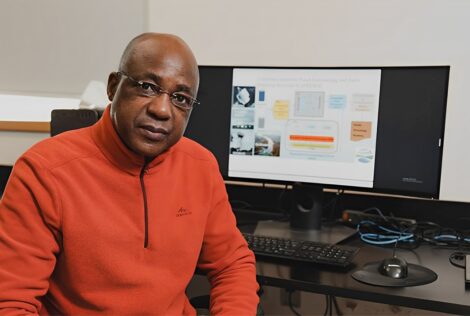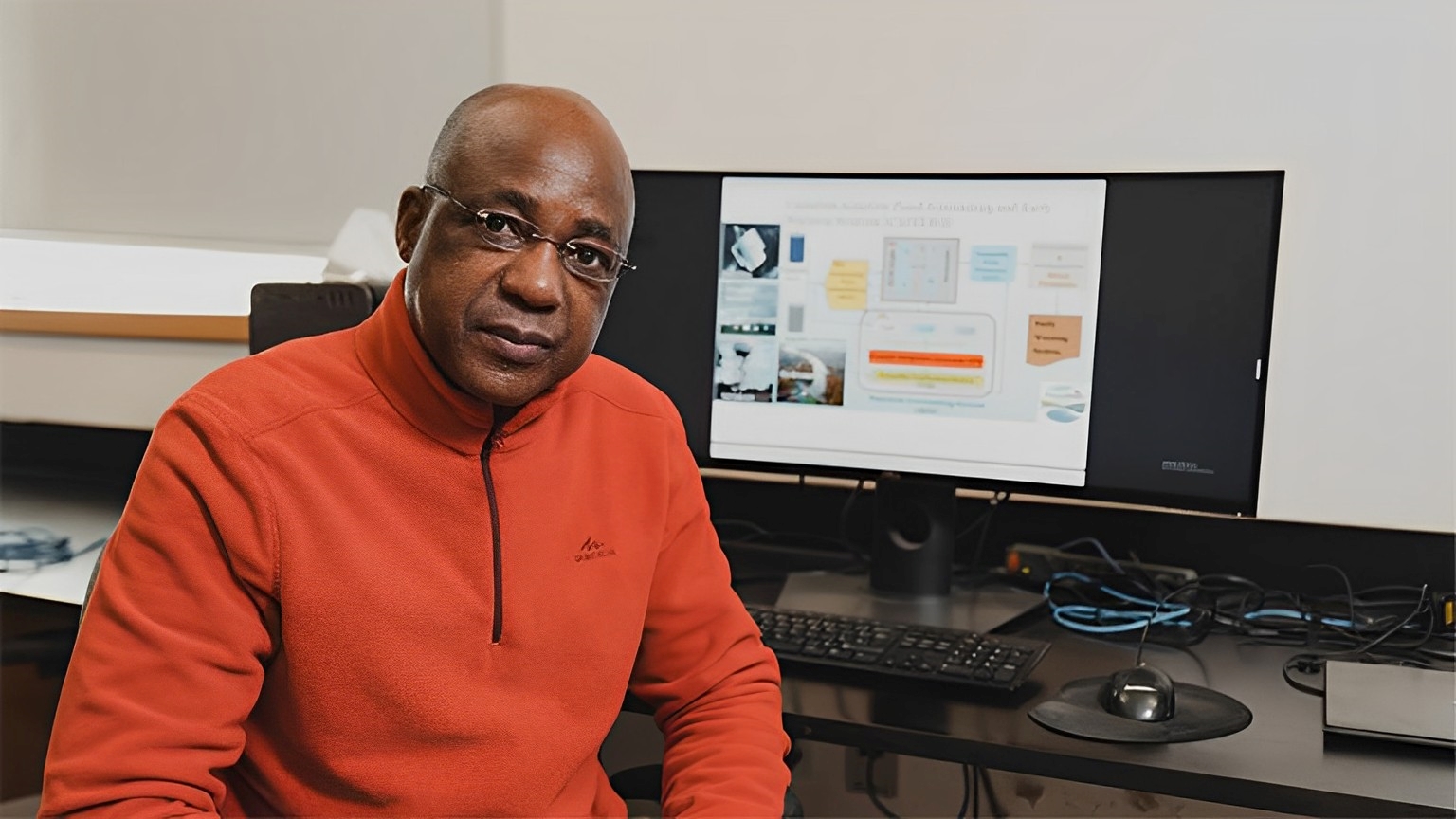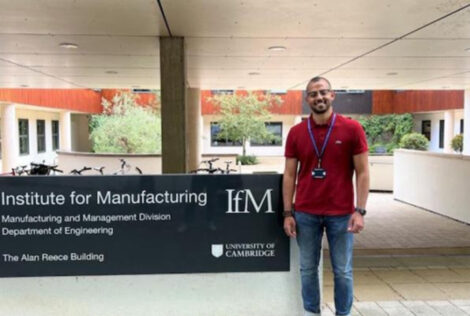

On the latest Big Ideas for a Changing World Podcast, Civil Engineering and School of Earth, Environment & Society Professor, Paulin Coulibaly talks about managing flood risk in Canada, working with Global Water Futures and advocating for EDI at McMaster.
Coulibaly leads FloodNet, a nation-wide research network funded by NSERC to enhance flood forecasting and management capacity in Canada.
“[When FloodNet formed] it was the first time that all the flood forecasters across Canada joined together on a single team to discuss, share information and find better ways of handling flood risk in Canada,” explains Coulibaly.
Floods are the deadliest natural disasters in the world after earthquakes and tsunamis and with Canada’s many rivers and lakes, Coulibaly says there is an urgent need for Canada to be on the forefront of flood forecasting research.
Coulibaly is also affiliated with the United Nations University Institute for Water, Environment and Health and is developing a more advanced hydrologic modelling tool in Canada as part of the Global Water Futures project.
With the support of the Canadian Foundation for Innovation (CFI), and the Ontario Innovation Trust, Coulibaly has created a network of sensors that are located across Southern Ontario to monitor water levels, weather information and water quality that can feed into the forecasting tools his team is developing.
Hydropower companies are taking notice of Coulibaly’s work. Through an NSERC partnership program with Hydro Quebec and BC Hydro, Coulibaly and his team have developed a tool for designing an optimum hydrologic network.
“This tool is very unique,” he explains. “It uses information theory and combines that with the most advanced optimization techniques that are out there. It helps companies ensure that their water monitoring networks are adequate enough to meet their needs.”
In addition to his research, Coulibaly is a devoted mentor to his students. He encourages students to be open to studying more than one stream of engineering in order to make a difference in facing challenges posed by climate change.
One discipline will not be enough to face our complex issues. Open your mind, look for other solutions and don’t be afraid to move ahead and be a part of the decision-making process.
Coulibaly is part of the African Caribbean Faculty Association at McMaster (ACFAM), a group that advocates for EDI at McMaster.
ACFAM has a mentorship program for black graduate students and researchers and are now putting together a mentorship document for new Black faculty hires as part of an initiative launched this past November, to appoint up to twelve emerging and established Black academics and scholars in each Faculty.
“Our pursuit of EDI is simply from my viewpoint a pursuit of justice,” he says. “Whenever a systemic barrier is removed it makes our entire society more just.”
“I’m very pleased with the foresight and the leadership role taking by McMaster on EDI,” he adds. “I really feel fortunate to be part of that opportunity. The new scholarship for black students and the new initiative to hire black faculty members across campus are all important steps in the right direction.”
Subscribe and listen to Big Ideas for a Changing World. Available on YouTube, Spotify, Apple Podcasts and Google Podcasts.


